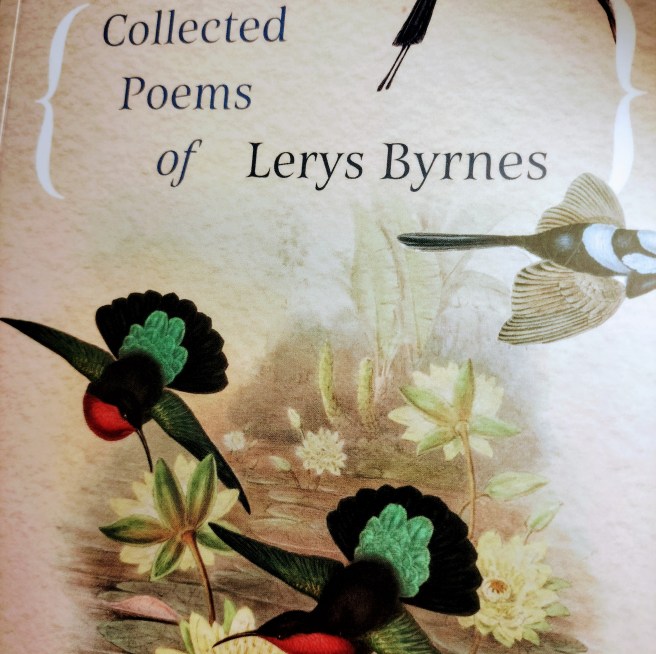
I was nineteen, living and teaching in the small town of Loch in South Gippsland. It was my first venture away from Huntington Grove East Coburg, away from family, away from friends. When I was sixteen, I had signed a bond with the State Education Department. I would earn as I learned to be a teacher; when I graduated, I would go to wherever the Department sent me to teach. I was sent to this school, this town. It would be the centre of my whole attention. There was of course no mobile phone, no TV, no computer. The connection with the outside world was a landline that was shared by the whole town. If you made a call, you could hear a click when somebody else picked up the line.
My challenge was to start afresh and become what I could be in a place where nobody knew me yet.
Not too long after I arrived Loch State School gained enough enrolments to be entitled to a third teacher. Her name was Lerys Northcott; she was coming fresh from Toorak Teachers College. The School Principal began to envisage a reallocation of class loads. This would make life easier for us both, but my concern was for this new young teacher.
The people of Loch, cautious about newcomers from the city had now made space for me, but only after I had lived for lonely weeks in a tiny room above the bar in the local pub. Whoever this young woman ‘Lerys’ might be, she surely didn’t need to cope with that.
The Coster family, with their dairy farm on the hill beyond the schoolhouse hill, had now given me board. I sounded them out. It was agreed that Lerys could be the second boarder if she chose to and if we could agree to share the bedroom.

Many decades later Lerys, now Lerys Byrne, wrote this poem which I have permission to use.
Part of the Story
Into skyspread
of strengthening light
the moon behind dark hills
rose to the rumble
of a country train.
A girl at the station
(she was almost a woman)
stood in the shadow
waiting to travel
to visit her auntie
for the long weekend.
The train came closer
but its sound insisted
that she cross the bridge
to the opposite platform
to catch a different train
in another direction
to another destination.
And that’s
not the end.
We were girls accepting the responsibilities of women. We gave the best we could to the children and parents of that little school. We prepared carefully for our classes and forged a friendship with the Principal and his family. Our whole life centered on this town. In the late afternoons when the schoolwork was done, we walked the hills while back on the farm the cows were still being milked. In Springtime we gathered wild daffodils. We were invited to join in Young Farmers Club functions. We danced (ballroom) with the young farmers. We dressed, as one did, in evening dress with flowers pinned into our hair. The local halls so well used in those times still pepper these green hillsides of South Gippsland.
On those walks and in that small bedroom we talked of faith and hope and the meaning of life. This is the Lerys I remember from almost 70 years ago. This has remained central to our friendship.
Much, much later, when she was known internationally as Lerys Byrnes, Poet, she wrote, ‘My poems are often short, seeking the essence of a theme or situation. I’m interested in exploring aspects of the inner self in relation to the outer world’.

Lerys came to Sydney, to St Josephs, Baulkham Hills, where I made my vows as a Josephite Sister. I grieved when our Josephite lifestyle did not allow for me to travel to Melbourne for her marriage vows.
Even now, every time we meet, our conversations continue as if they have never been interrupted. Lerys and her husband Brendan are in retirement now. They have a daughter, two sons and grandchildren.
In my hand now I hold her book Collected Poems of Lerys Byrnes; it brings together more than 200 of her poems. Her work has been published in a range of Australian magazines, and in Canada, the UK, and the USA. Always there is the inner self in relation to the outer world.
Sons (from her journal)
I have two sons
– one dark; the other fair;
men now,
and, as advised,
I let them go
(a woman learning of
the sad, wise years).
But they return,
land and leave again.
I have rejoiced
and prayed
and grieved past grief
for sons of mine
who, fused and separate,
weighed each other,
weighed all our hearts
and lightened with their quick
and glancing fun
our darkening fears.
Balances shift.
A see-saw in the park
clanks in the rising wind.
Children have left the swings
Now men head home..
In May 2014, Lerys, Brendan and I travelled back to Loch to attend the 125th anniversary of the school’s foundation.

A man whom I had taught in Grade 4 was celebrated as an elder.
He and his grandson were honoured; they buried a time capsule to remember the occasion.
He is pictured at the right in this blurred image, Lerys at the center and I am closest to the camera.
